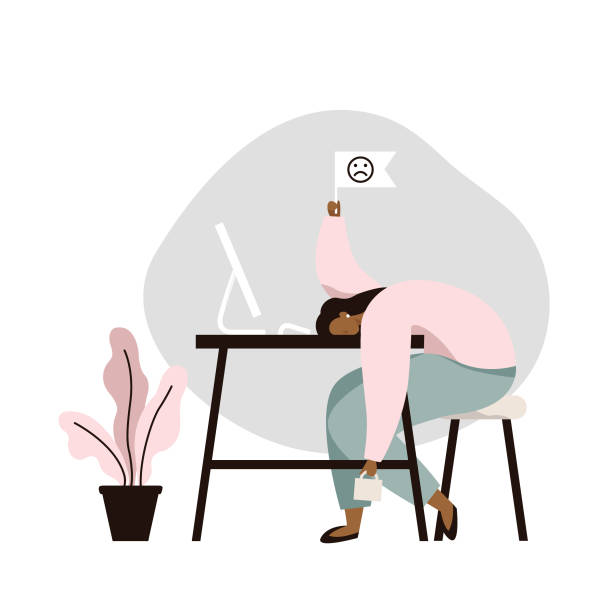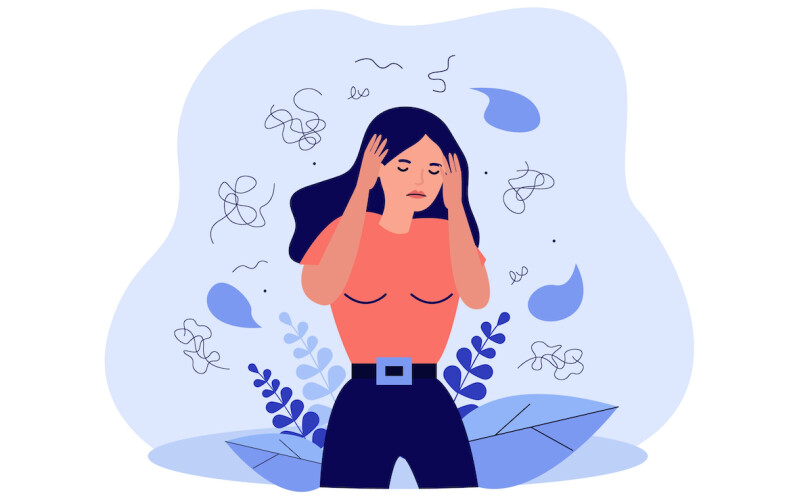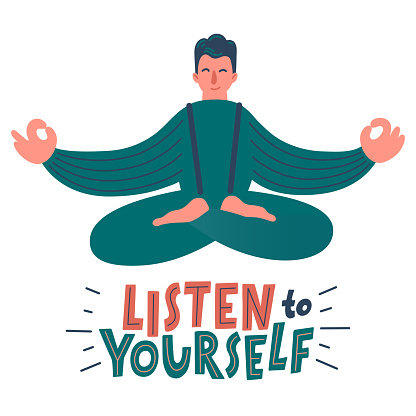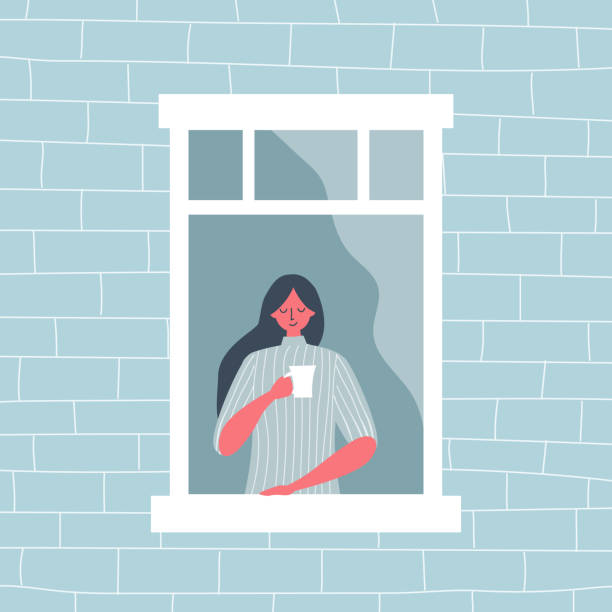6 Things Your Anxiety Is Trying to Tell You

Anxiety can feel overwhelming to endure. Maybe you’ve tried everything to cope with these feelings- meditation, running, journaling, all those fancy herbal teas, and whatnot.. Yet you still feel lost and are seeking the solution. What we often miss about anxiety or any form of distress or fear, is that it is not a battle to be conquered or a threat meant to be eliminated. It is instead an inner voice of our conscience that you could gain power from if you take a step back and pay close attention to its message.
Many of us experience fear as an overwhelming stop sign that warns us: “Do not cross!” But have you ever taken a moment to think about what this signal might be trying to convey? Where are these thoughts of fear coming from? What do they mean, whether that may be real or imagined, past or present? This fear is a message- sometimes helpful and other times not so much- but it conveys vital information about your inner needs, beliefs, values, and your relationship with the world around you. Let’s explore what your anxiety might be trying to tell you.
Before we continue, please keep in mind that this article is purely for educational/informative purposes and is not meant to be a substitute for medical advice from a licensed mental health professional.

1. You’re Overwhelmed
If your calendar has been filling up with meetings, events, reminders, and too many tasks and to-do’s, there’s a good chance your anxiety stems from too much going on in your life. You can’t really be in more than one place at once, and the same idea applies to your mental state. You can’t really think about two things at once, even if you try really hard! As author of the mental health journal, Vibe Check: Be Your Best You, Margarita Tartakovsky states in her article with PsychCentral, “Recurring anxiety may be a sign of unresolved problems. Focusing on pinning down what you’re really afraid of and exploring why you’re afraid of it can help.” If you feel an unnatural amount of stress thinking about getting up and out of bed the next day, your anxiety is serving as a signal for you to scale back and take things slower. Perhaps you have too many unclear goals and responsibilities. In this case, it would be a good start to bring clarity and focus to your life by writing down clear, achievable goals and mapping out how you plan to approach them. It’s not worth it to stretch yourself too far and too thin when it compromises your motivation, productivity, and overall well-being.

2. You’re Plateauing
Even though you’re always busy, are you bored of the same old, same old? Does your passion feel dry? Creativity feel stale? Is your daily routine fulfilling you or leaving you feeling the need to be fulfilled? If you feel lost and stuck in a monotonous lifestyle and feel anxious, this feeling may be a sign that it’s time to step out of your comfort zone. According to Oregon Counseling, hobbies have shown to have various benefits on mental health, including lower stress, more sleep, better physical health, more sleep, more social connections, improved work performance, and increased overall happiness.” So it’s good to try something new! Explore new interests, dive into new hobbies to pass time, and reach for a new love of learning. Trying something new can be intimidating for some, as humans have a fear of failure. However, it’s more helpful to view the learning process as the path to accomplishing more rather than an obstacle in your way. Your anxiety may be telling you that you have more potential you can tap into.

3. You Need a Break
Maybe you tried doing less or doing more and everything else you could think of in between- and there you are again, with anxiety still looming over you. As psychologist and Director of Behavioral Health, Jennifer Weber, PsyD, states, “using anxiety-relieving coping strategies without understanding why you’re anxious can become a Band-Aid or quick fix [and] as a result, you could miss out on the opportunity to resolve the underlying cause.” Learning how to cope with anxiety requires time and attention, which can both be hard to find under times of unpredictability and stress. It is crucial for the mind and body to get rest when under pressure so you can re-evaluate your needs, desires, and goals.
If you feel like you’ve tried everything to cope with anxiety, maybe it’s time to take a step back and take part in the most active form of doing… well, nothing. This can be called “actively” doing nothing because spending so much energy towards understanding your stress takes perseverance. After all, if you don’t take time off for yourself, your body will take the much-needed break for you- most likely at an undesirable time. This is when you can be more susceptible to developing anxiety-induced health issues. A change in scenery, fresh air, and a free schedule can do wonders for resetting the mind.

4. You’re Spending Time With the Wrong People
Spending time with family, friends, and peers should be a comfortable and gratifying experience. If you feel out of place, excluded, or just insecure around anyone when you’re around them, your anxiety is most likely prompting you to stay away from them. It’s always important to trust your gut. Hanging with anyone should not leave you taxed and tired out. According to the Harvard Business Review, “Despite popular belief, there’s a deep neurological basis for intuition. Scientists call the stomach the “second brain” for a reason… When you approach a decision intuitively, your brain works in tandem with your gut to quickly assess all your memories, past learnings, personal needs, and preferences.” If you feel drained when spending time with anyone, it’s time to keep your distance, set necessary boundaries, and make new connections to reform your inner circle so you can be surrounded by the people you trust the most.

5. You Need to Listen to Your Needs
It’s great to be there for those around you when they need the support, but constantly neglecting yourself and your needs in the process can be quite unfavorable. You know how during the safety demonstrations on flights, they always say to put your oxygen mask on first before helping others? It’s because if you don’t show up for yourself first, how can you be in good enough condition to provide adequate care for anyone else? Being selfless does not mean you can’t be selfish- the two go hand in hand. If you are overly stressed out and can’t catch a break, think about what you can do for yourself to alleviate the pressure. Your anxiety is practically begging you to start prioritizing yourself because that is the need of the hour- any and all the hours for that matter.

6. You Need to Be Patient With Yourself
And with all of the signs above, the biggest thing you can do when it comes to understanding your anxiety is to be patient with yourself. According to author and medical staff member, Leslie Becker-Phelps, Ph.D., dealing with anxiety and understanding these complex feelings and emotions is a complex adventure in itself. Remember that you get to choose how you see your anxiety and how you let it see you. You have the power to decide what it means to productively deal with anxiety. You get to change the switch on what helpful thinking and unhelpful thinking means to you. They say patience is a virtue. Here, patience is a tool that can guide you as you work to better understand your needs.

Your anxiety serves as a voice for your inner fears and inhibitions. Opening yourself to these emotions takes courage, and here, vulnerability is your greatest strength. As you get to know this part of yourself just a little bit more, day by day, you get the opportunity to nurture your needs and emerge with the energy needed to make each day a little bit easier. Good luck on your journey!

References:
Becker, L. (2015, May 19). Anxious? Your Body May Be Trying to Tell You Something. Psychology Today. Retrieved August 9, 2022, from https://www.psychologytoday.com/us/blog/making-change/201505/anxious-your-body-may-be-trying-tell-you-something
Juby, B. (2021, September 14). How to Identify the Real Cause of Your Anxiety. Psych Central. Retrieved August 9, 2022, from https://psychcentral.com/anxiety/getting-to-the-root-of-your-anxiety
Oregon Counseling. (2021, April 1). How Hobbies Benefit Our Mental Health. Oregon Counseling. Retrieved August 23, 2022, from https://oregoncounseling.com/article/how-hobbies-benefit-our-mental-health/
Smith, K. (2017, March 29). Facing the fear of incompetence – Counseling Today. Counseling Today. Retrieved August 9, 2022, from https://ct.counseling.org/2017/03/facing-fear-incompetence/
Tull, M. (2020, November 21). The Positive Side to Your Anxiety. Verywell Mind. Retrieved August 9, 2022, from https://www.verywellmind.com/the-purpose-of-anxiety-2797497
Wilding, M. (2022, March 10). How to Stop Overthinking and Start Trusting Your Gut. Harvard Business Review. Retrieved August 9, 2022, from https://hbr.org/2022/03/how-to-stop-overthinking-and-start-trusting-your-gut



Responses